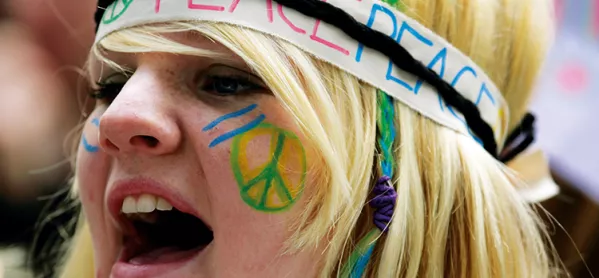- Home
- The global citizens of tomorrow need our help today
The global citizens of tomorrow need our help today

The Global Education and Skills Forum 2017 will focus on one of the most urgent question the world faces: how do we teach our children to become global citizens?
I’m proud that debates like this have won the Global Education and Skills Forum its reputation as the world’s pre-eminent education conference. Now in its fifth year, the forum is a tribute to the vision of His Highness Sheikh Mohammed Bin Rashid Al Maktoum, vice-president and prime minister of the UAE and ruler of Dubai, who nurtured it from a seed of an idea into the “Davos of education”. Given the UAE’s bold leadership in establishing the world’s first tolerance charter, there is no better place for a debate on global citizenship to take place.
Since we met this time last year, events have shaken many of our assumptions to the core. Governments have fallen and new populist forces have risen. Public debates have become angrier - amplified by shrill voices on social media. In this climate, it can be difficult to predict what will happen in the next 10 days. However, as educators, our concern must be what happens in the next 10 decades.
The young people studying in classrooms today will face perhaps the heaviest burden of any generation. It will fall to them to solve problems that previous generations have failed to address: too many lives are still blighted by the circumstances of that person’s birth; record numbers are displaced by war, and suffering in hunger and poverty; over a quarter of a billion children don’t have a place at school; the existential threat of climate change; changes to the economy that will see automation destroy millions of jobs.
Finding solutions to these problems willbe impossible without the combined effort and talents of young people from every background. And they will never rise to the challenge if the stereotype is true that they are more interested in the latest reality television programme than in the future of the world around them.
This year the Varkey Foundation tested this assumption by asking 20,000 15- to 21-year-olds in 20 countries the same questions about their lives for our report Generation Z: What the world’s young people think and feel. We found a generation of smart, informed citizens of the world who share a remarkably similar outlook. Extremism and terrorism top young people’s list of concerns in most countries - with more than eight in 10 saying that it makes them fearful for the future. Reassuringly, less than a third say that celebrities influence their values.
This generation are natural global citizens: it’s part of the air they breathe. In their lifetime, technology has shrunk the world. They are more likely than their parents to have travelled widely and to have friends on the other side of the world.
Two-thirds of young people that we polled for our report have close friends who belong to a different religion, and very few of them - less than one in five - say that a person’s religion is an important factor when deciding on their friendships.
They also have a real-time window into the lives of their friends through social media - even if they live a continent away. There is less room for mutual misunderstanding when they know the smallest details of each other’s lives. This technology also gives these young people huge power: they are the first generation who can mobilise an army of like-minded activists through the screen of their smartphone. No wonder that nearly nine in 10 put their faith in technological advancement to make the world better.
Far from being self-absorbed, young people across the globe have a strong sense of responsibility that extends beyond their country’s borders. For instance, in most countries, young people want to make it easier for migrants to live and work legally, and want their government to do more to tackle the global refugee crisis.
Making a difference
Two-thirds of young people think that making a wider contribution to society - beyond helping their family and friends - is important. We found that young people are motivated to get involved, but they need our guidance on how to do it.
Many say that they need better skills and a greater knowledge about how they can make a contribution. They need the help of all of us: parents, teachers and citizens. I hope out of this year’s GESF we can discuss what tools we can give them to make a difference, whether locally, nationally or internationally.
Of course, though most young people have an internationalist mindset, a minority are retreating into nationalism or distorted versions of religion. Where the rest of the world has become more open, their minds have become corroded by intolerance - from the rise of far-right groups in Europe to the poisonous spread of religious extremism throughout the world.
We devote vast resources to dealing with the after-effects of extremism. Imagine if we were to devote the same intellectual and financial capital to influence young people in those brief early years when their minds can still be moulded.
In Dubai this weekend, we have a unique cross-fertilization of expertise from the worlds of education, business, government and technology. It’s an opportunity for fresh insights on how, in these turbulent times, we can help create global citizens.
Only if we do this will this generation stand a chance of turning their dream of a more peaceful world into reality.
Sunny Varkey is founderof the Varkey Foundation
Keep reading for just £1 per month
You've reached your limit of free articles this month. Subscribe for £1 per month for three months and get:
- Unlimited access to all Tes magazine content
- Exclusive subscriber-only stories
- Award-winning email newsletters

